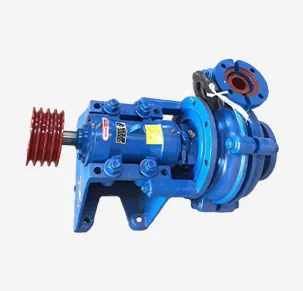Punjabi
- Afrikaans
- Albanian
- Amharic
- Arabic
- Armenian
- Azerbaijani
- Basque
- Belarusian
- Bengali
- Bosnian
- Bulgarian
- Catalan
- Cebuano
- Corsican
- Croatian
- Czech
- Danish
- Dutch
- English
- Esperanto
- Estonian
- Finnish
- French
- Frisian
- Galician
- Georgian
- German
- Greek
- Gujarati
- Haitian Creole
- hausa
- hawaiian
- Hebrew
- Hindi
- Miao
- Hungarian
- Icelandic
- igbo
- Indonesian
- irish
- Italian
- Japanese
- Javanese
- Kannada
- kazakh
- Khmer
- Rwandese
- Korean
- Kurdish
- Kyrgyz
- Lao
- Latin
- Latvian
- Lithuanian
- Luxembourgish
- Macedonian
- Malgashi
- Malay
- Malayalam
- Maltese
- Maori
- Marathi
- Mongolian
- Myanmar
- Nepali
- Norwegian
- Norwegian
- Occitan
- Pashto
- Persian
- Polish
- Portuguese
- Punjabi
- Romanian
- Russian
- Samoan
- Scottish Gaelic
- Serbian
- Sesotho
- Shona
- Sindhi
- Sinhala
- Slovak
- Slovenian
- Somali
- Spanish
- Sundanese
- Swahili
- Swedish
- Tagalog
- Tajik
- Tamil
- Tatar
- Telugu
- Thai
- Turkish
- Turkmen
- Ukrainian
- Urdu
- Uighur
- Uzbek
- Vietnamese
- Welsh
- Bantu
- Yiddish
- Yoruba
- Zulu
Telephone: +86 13120555503
Email: frank@cypump.com
ਅਗਃ . 14, 2024 11:52 Back to list
Choosing the Right Pressure Pump for Efficient Pipeline Transportation and Maintenance Solutions
Pressure Pump for Pipeline Systems Ensuring Efficiency and Reliability
In modern fluid transportation systems, pressure pumps play a pivotal role, particularly in pipeline applications. As industries increasingly depend on efficient and reliable transportation of liquids, the need for effective pressure pump solutions has become paramount. This article explores the significance of pressure pumps in pipeline systems, their types, applications, and benefits.
Understanding Pressure Pumps
A pressure pump is a mechanical device used to move fluids through a pipeline by increasing the fluid's pressure. This pressure enables the transported liquid to overcome friction losses, gravity, and other resistance factors within the piping system. Pressure pumps are essential in various sectors, including oil and gas, water distribution, chemical processing, and food and beverage industries.
Types of Pressure Pumps
There are several types of pressure pumps used in pipeline systems, each with distinct characteristics and applications
1. Centrifugal Pumps These pumps use a rotating impeller to impart velocity to the fluid, converting kinetic energy into hydraulic energy. Centrifugal pumps are widely used for transporting water and other low-viscosity fluids. They offer smooth flow and are efficient for high flow rates.
2. Positive Displacement Pumps Unlike centrifugal pumps, positive displacement pumps move a fixed amount of fluid with each cycle. These pumps are ideal for viscous liquids and applications requiring precise flow control. They include gear pumps, diaphragm pumps, and piston pumps.
3. Submersible Pumps Designed to operate underwater, submersible pumps are often employed for drainage, sewage pumping, and deep well applications. They are installed below the fluid level, which eliminates the need for priming and enhances efficiency.
Applications in Pipeline Systems
Pressure pumps find numerous applications in pipeline systems, including
- Oil and Gas Transportation Pressure pumps are critical in transporting crude oil and natural gas from extraction sites to refineries and distribution points. These pumps ensure that the fluids can flow over long distances while maintaining the required pressure.
pressure pump for pipeline

- Water Supply and Wastewater Management Municipal water supply systems rely on pressure pumps to distribute water efficiently across various regions
. Similarly, wastewater treatment plants use pumps to move sewage through the treatment process.- Chemical Processing In chemical manufacturing, pressure pumps handle various corrosive and viscous fluids, ensuring safe and efficient transportation through pipelines.
- Irrigation Systems Agricultural irrigation systems often utilize pressure pumps to deliver water to crops, optimizing water usage and enhancing crop yield.
Benefits of Utilizing Pressure Pumps
The deployment of pressure pumps in pipeline systems brings numerous advantages
1. Increased Efficiency Pressure pumps ensure that fluids are transported over long distances with minimal energy loss, leading to increased system efficiency.
2. Enhanced Reliability Modern pressure pumps are designed for durability and reliability, reducing maintenance costs and downtime in industrial operations.
3. Customizable Solutions With a variety of available pumps, industries can select solutions tailored to their specific fluid characteristics and operational requirements.
4. Safety and Compliance Adopting appropriate pressure pump systems can enhance safety by preventing leaks and spills, thus ensuring compliance with environmental regulations.
Conclusion
In summary, pressure pumps are indispensable in pipeline systems, facilitating the efficient and safe transportation of fluids across various industries. With a range of types and applications, they cater to specific requirements, providing customizable solutions that enhance operational efficiency and reliability. As industries continue to evolve, the role of pressure pumps will remain crucial in ensuring the effective management of fluid logistics in a sustainable and technologically advanced manner.
-
Heavy-Duty Mining Sludge Pumps - Wear-Resistant Slurry Handling
NewsAug.02,2025
-
Horizontal Split Case Pump with GPT-4 Turbo | High Efficiency
NewsAug.01,2025
-
ISG Series Pipeline Pump - Chi Yuan Pumps | High Efficiency, Durable Design
NewsAug.01,2025
-
Advanced Flue Gas Desulfurization Pump with GPT-4 Turbo | Durable & Efficient
NewsJul.31,2025
-
ISG Series Vertical Pipeline Pump - Chi Yuan Pumps | Advanced Hydraulic Design&Durable Construction
NewsJul.31,2025
-
ISG Series Vertical Pipeline Pump - Chi Yuan Pumps | Energy Efficient & Low Noise
NewsJul.31,2025










